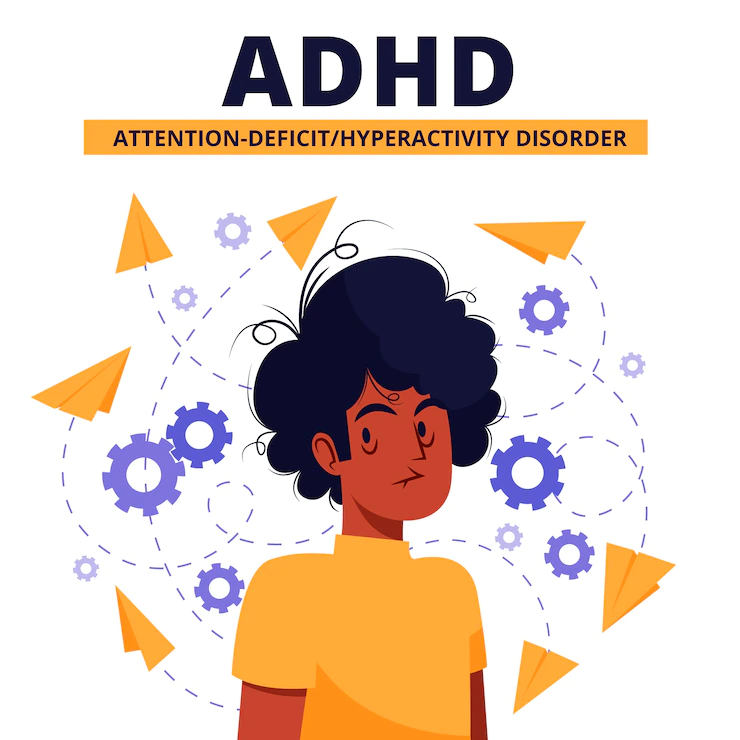Attention-Deficit/Hyperactivity Disorder (ADHD) is a neurodevelopmental disorder that commonly affects children, but can persist into adulthood. It is characterized by persistent patterns of inattention, hyperactivity, and impulsivity that significantly impact daily functioning and quality of life. Recognizing the symptoms of ADHD is crucial for early identification and intervention. In this article, we will explore the common symptoms associated with ADHD.
- Inattention: One of the primary symptoms of ADHD is inattention. Individuals with ADHD may struggle to sustain attention and focus on tasks, especially those that require sustained mental effort. They may have difficulty organizing tasks, frequently lose important items, and appear forgetful. They may also struggle with following instructions, completing tasks, and staying on track.
- Hyperactivity: Hyperactivity is another characteristic feature of ADHD, particularly in children. Individuals with ADHD may exhibit excessive restlessness, fidgeting, and an inability to sit still for extended periods. They may constantly feel the need to move or engage in physical activities, even in situations where it is inappropriate or unsafe.
- Impulsivity: Impulsivity refers to acting without thinking of the consequences. People with ADHD often struggle with impulse control and may engage in impulsive behaviors. This can manifest as interrupting others during conversations, blurting out answers before a question is complete, or having difficulty waiting for their turn. Impulsivity can also lead to risk-taking behaviors and difficulty considering the long-term consequences of their actions.
- Poor Time Management and Organization: Individuals with ADHD often struggle with managing their time and staying organized. They may have difficulty prioritizing tasks, meeting deadlines, and planning ahead. This can lead to chronic lateness, missed appointments, and a sense of disorganization in their daily lives.
- Forgetfulness: Memory difficulties are common in individuals with ADHD. They may frequently forget appointments, deadlines, or important details. They may struggle with remembering instructions, following through on tasks, and recalling information they have learned. This can lead to challenges in academic or work settings.
- Impaired Executive Functioning: ADHD can also affect executive functioning skills, which include abilities such as problem-solving, decision-making, and self-regulation. Individuals with ADHD may struggle with planning, initiating and completing tasks, and managing time effectively. They may have difficulty regulating emotions and impulses, which can impact their relationships and social interactions.
It is important to note that the symptoms of ADHD can vary widely among individuals, and not everyone will experience all of the symptoms. Additionally, symptoms may present differently in children versus adults. If you suspect that you or someone you know may have ADHD, it is recommended to seek a comprehensive evaluation by a qualified healthcare professional, such as a psychiatrist or psychologist.
Early identification and diagnosis of ADHD can significantly improve outcomes and quality of life. With proper diagnosis, individuals with ADHD can access appropriate interventions and support, which may include medication, behavioral therapies, and educational accommodations. These interventions can help individuals with ADHD manage their symptoms, develop effective coping strategies, and thrive in their personal and professional lives.
If you suspect that you or someone you know may have ADHD, reach out to a healthcare professional for a comprehensive assessment and guidance. Remember, with appropriate support and strategies, individuals with ADHD can lead fulfilling and successful lives.










